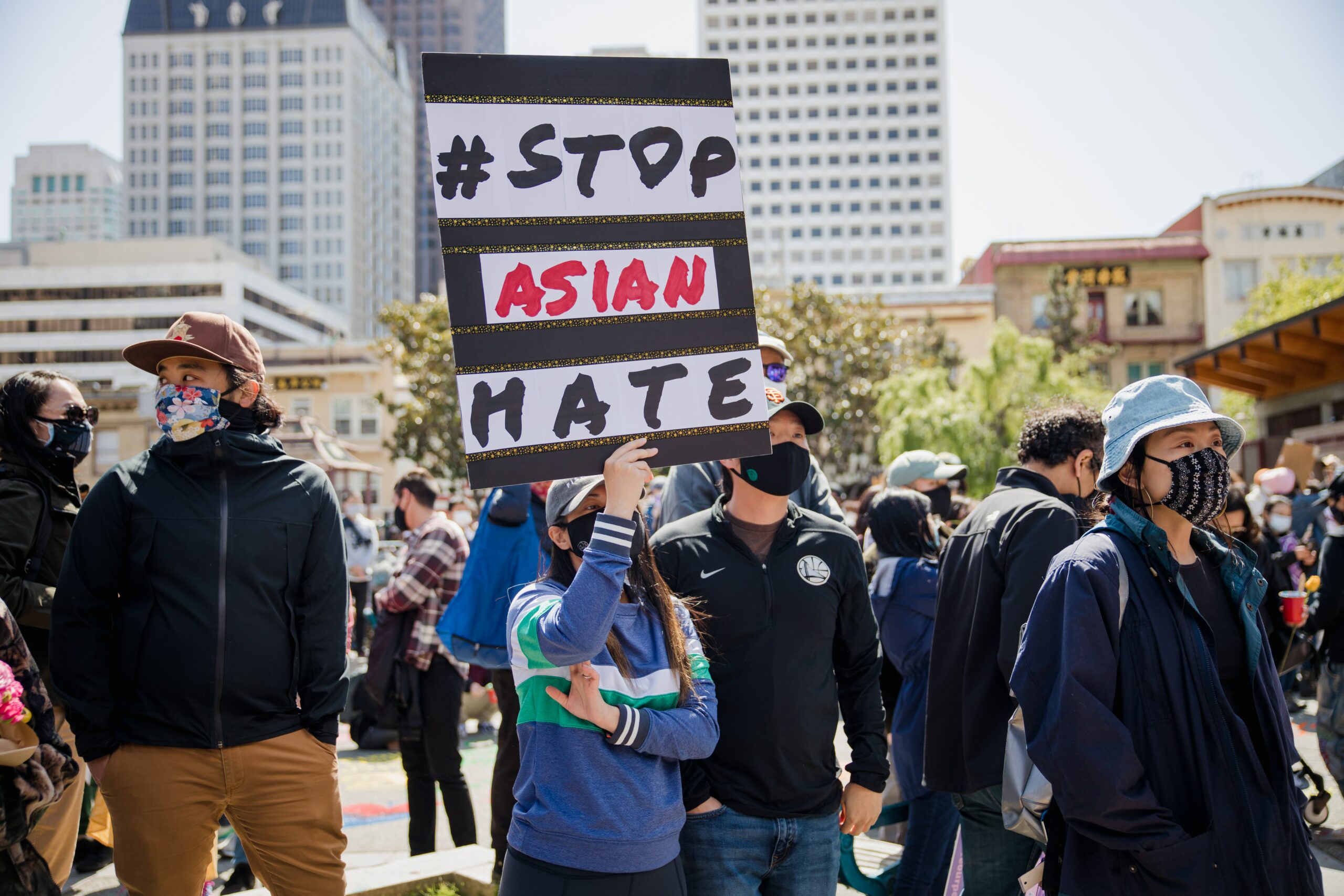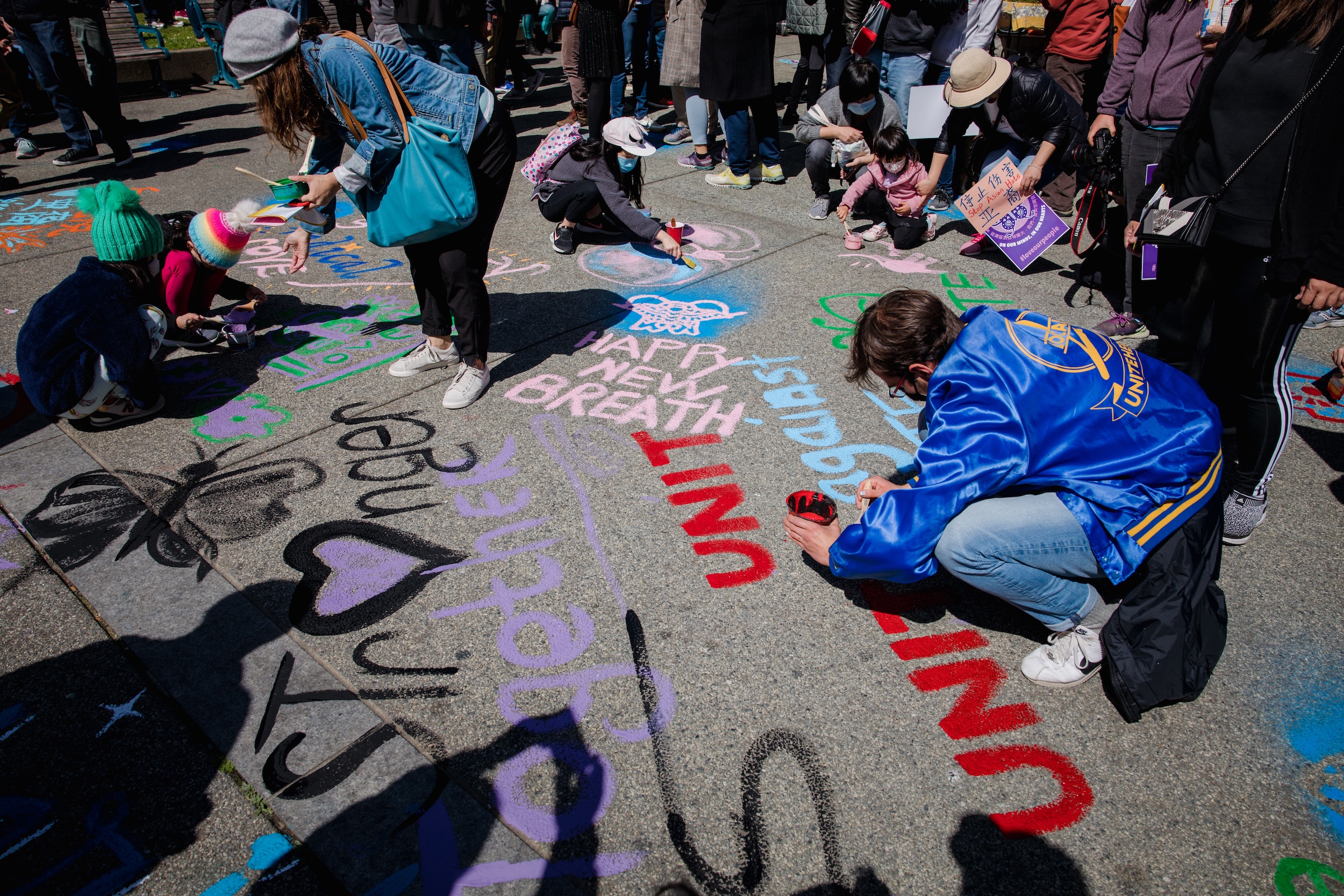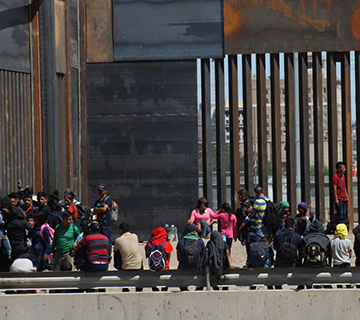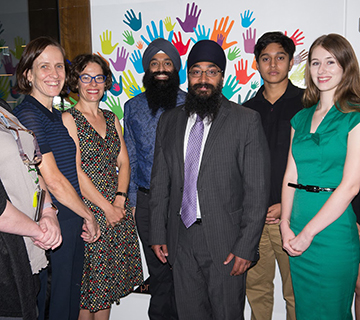Countering Hate
Protecting Minority Communities
Program Area:
Advocacy & Reform
Location:
United States

We are working to increase access to information around the prevalence of hate crimes, and identify where the gaps exist, in order to advocate for stronger protections for minority communities in the U.S.
The Prevalence of Hate Crimes
Hate crime incidents are on the rise in the U.S., having increased nearly 31.2% in 2021 compared to the previous year.
The most updated data from the FBI, from March 2023, counts 10,840 incidents in 2021, involving 12,822 victims. Out of the victims:
- 64.5% were targeted because of the offenders’ race, ethnicity or ancestry bias;
- 15.9% were targeted because of the offenders’ sexual-orientation bias; and
- 14.1% were targeted because of the offenders’ religious bias.
The prevalence of hate crimes based on race and ethnicity is not surprising. During Covid-19, we saw a dramatic surge in racism and violence against Asian Americans, with advocacy group Stop AAPI Hate reporting more than 9,000 anti-Asian hate incidents from March 2021 to June 2021.
While statistics from the FBI provide a lens into the prevalence of hate crimes in the country, we also know that there is severe underreporting. This year, the FBI moved to a new reporting system to try and address this issue. However, due to the number of agencies that did not submit reports, their statistics were far too low and had to be updated. Information from advocacy groups provides additional detail, but the full picture is still far from view.
Inadequate Data Collection
Inadequate data collection is a major obstacle in countering hate crimes. We are building a Data Dashboard that analyzes the information we do have, as well as the gaps that exist.
One of our findings is that 41.8% of violent hate crime victimizations were not reported to the police from 2015-2019.
Underreporting stems from reasons including mistrust of law enforcement to properly investigate the incident as a hate crime and prevent retaliation, and fear that police will use their position to deport victims who lack legal immigrant status.
Limited Training of Law Enforcement
In addition to underreporting, it is clear that law enforcement needs to be better trained to identify and document hate crimes.
At present, the vast majority of agencies are reporting no hate crimes, which points to structural issues in how hate crimes are understood by law enforcement.
We found that while 79% of 18,806 eligible law enforcement agencies (LEAs) participated in hate crime data collection in 2021, 79.9% of those agencies reported zero hate crimes for the year.
Part of the problem is that states do not have a uniform definition of hate crime. Furthermore, only 30 states and Washington, DC require state-based collection of hate crime data, and the actual reporting of data by individual law enforcements to the FBI is voluntary.
There is also a lack of consistency pertaining to hate crime laws, with some states lacking any legislation protecting victims at all. Since each state legislates hate crimes differently, it is very difficult to obtain reliable data.
It is also important to question the type of data that is being collected, which has seen some improvements in recent years. In 2013, ICAAD was part of a coalition of advocacy organizations that convinced the FBI to record crimes against Sikhs, Arabs and Hindus on the Uniform Crime Reporting (UCR) form. Before, governmental data against these communities was virtually non-existent, despite clear evidence of hate-motivated violence against certain communities after 9/11.
Monitoring Domestic Extremism
The final important component to countering hate crimes is increasing the monitoring of domestic extremism.
The Department of Homeland Security’s limited monitoring of domestic right-wing extremists has actually impacted the government’s ability to protect and warn vulnerable communities from attacks.
We know that domestic extremism is one of the biggest obstacles in the US. From 2012 through 2021, nearly three in four murders that were categorized as domestic terrorism were committed by right-wing extremists. Yet law enforcement maintains a disproportionate focus on Islamic extremism, and the perpetuation of stereotypes of minority communities that hardens discriminatory sentiments.

Hate crimes are a product of societal norms within a framework that values white supremacy. Addressing bias and discrimination within systems is key to preventing bias-motivated violence.
Recommendations
ICAAD will continue to advocate for improvements to the existing systems that identify and document hate crimes. Our recommendations include:
- Mandatory hate crimes reporting for all law enforcement agencies
- National Hate Crimes Task Force that includes NGO and local community collaboration
- Collecting victim demographics data to better protect vulnerable communities
- Patrol Guides (the book issued to law enforcement officers across the country) to include a consistent bias motivated incident procedure




